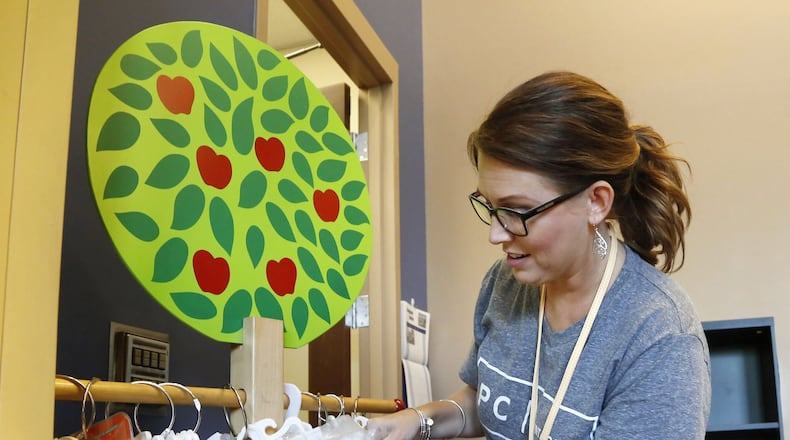Kinder Elementary was one of the pilot schools last year for the Ohio School Wellness Initiative. It’s continued this school year, and Ali Masters, behavioral health & wellness coordinator, whose position is funded by a grant from the Ohio Department of Mental Health and Addiction Services, said the results for Kinder have been astonishing.
Last year, they found about a 59% reduction in office visits, a 57% reduction in major incidents, a 46.4% reduction in fights and a 48.5% reduction in suspensions.
“I want to emphasize, we’re not perfect, these things still happen,” Masters said. “But I think we’re better equipped to handle it. The students feel safe, the staff feels safe.”
Again and again during the last two years, school leaders have told me they’re worried about the mental health of students. Leaders worry about staff too, but schools mostly have been focused on students, and for good reason.
In 2021, suicide was the leading cause of death for Ohioans ages 10 to 24. School staff have reported an increasing amount of disruptive behavior in schools in the last two years, leading some to leave the profession entirely.
The Ohio School Wellness Initiative makes sure both students and teachers are able to identify their emotions and gives everyone tools to deal with emotions. Through a partnership between Miami University, the Ohio Department of Mental Health and Addiction Services and the Ohio Department of Education, It breaks down the barriers between teachers, social workers and school counselors, ensuring everyone is working together.
Miamisburg has focused on mental health, working to improve staff wellbeing as well as student wellbeing. That’s because teachers have to make sure they are taken care of before they take care of kids.
At Kinder, Masters said one part of the initiative, a program that allowed teachers to tap in other teachers when they needed to step out with a student, respond to a text from their own kid or use the bathroom, was the part that teachers most often said was the most useful. That’s even though Kinder redid their staff lounge to more of a spa, which had been wildly popular with staff.
“This system just gives staff a chance to be human when they need to be human,” Masters said.
In a survey done by Miamisburg, Masters said they found belonging was up 7.6%, climate was up 92.7% and wellbeing was up 60.8%.
“That means that people trust each other, they are supported by each other,” Masters said. “And that is collective wellness.”
Deb Robison, director of outreach and collaboration at Ohio’s School-Based Center of Excellence for Prevention & Early Intervention at Miami University, said last year’s pilot program started with 80 schools, including charter schools, public schools and online schools, and had dropped to 69 schools by the end of the year for various reasons.
This year, she knows of 14 schools who are actively working with Miami University, including Kinder Elementary, to implement the program because they have coordinators through grants.
Kinder Elementary is one of the schools who are seeing the most results with the program, Robison said. But there has been plenty of success at other schools.
“We forget that there’s a whole array of services in the middle that we really can start to develop, implement and plug kids into, that not as intensive,” Robison said. “They may not need that level of intensity. But we identify students early on. We’re also identifying what the services are that our kiddos need and bringing those into the building.”
The materials that any school needs are free to access at ohioschoolwellnessinitiative.com. Robison says she hopes more schools take advantage of them. Robison encourages people to look into getting a dedicated person, like Masters, to run the program, because those programs have shown the greatest results.
Eileen McClory is a Dayton Daily News education reporter.


